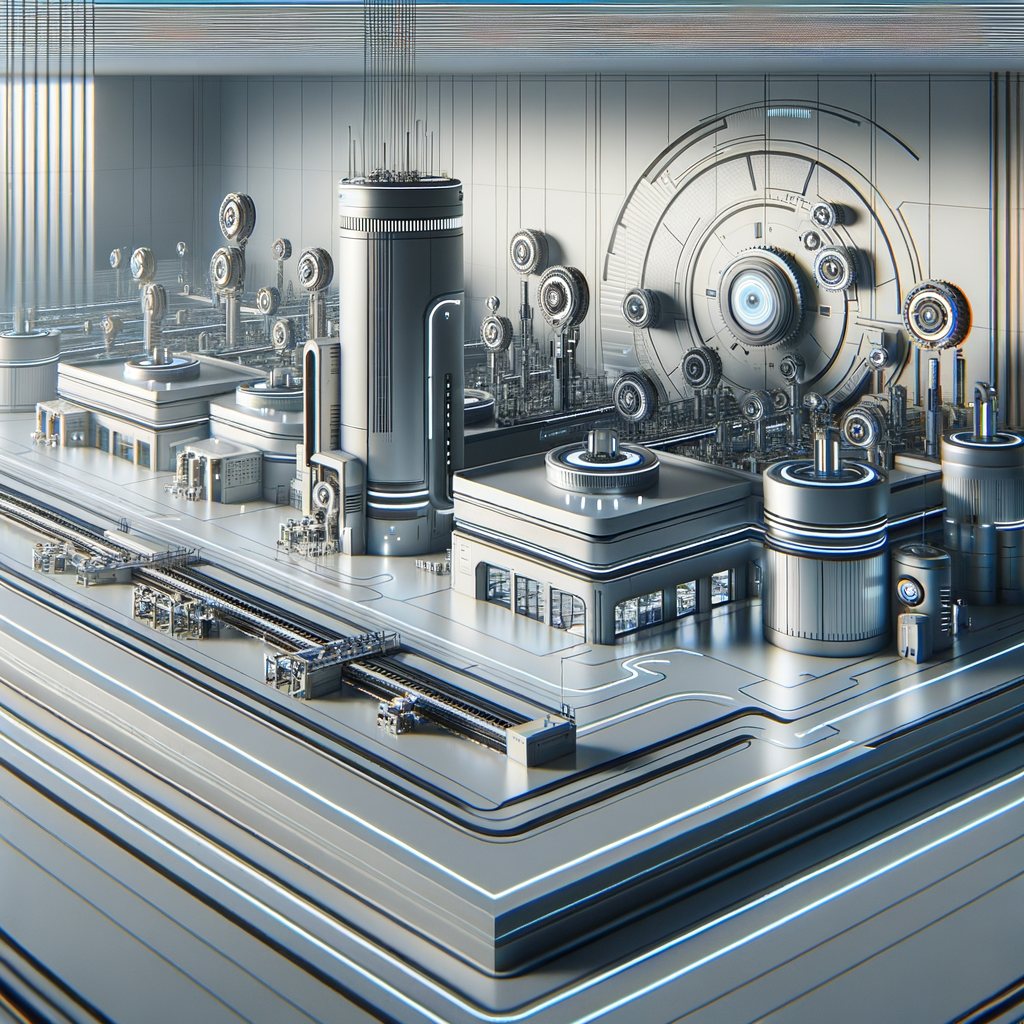
From Automation to Autonomy: AI's Role in Shaping Tomorrow's Factories
Dive into the world of smart manufacturing where AI is revolutionizing the way factories operate. This blog explores the journey from mere automation to sophisticated autonomy, highlighting AI's transformative impact on productivity, efficiency, and innovation in the industrial sector. Discover how cutting-edge AI technologies are paving the way for a new era of intelligent manufacturing.
From Automation to Autonomy: AI's Role in Shaping Tomorrow's Factories
The continuous advancement of technology has initiated a paradigm shift in manufacturing processes worldwide. As factories transition from traditional automation to fully autonomous systems, Artificial Intelligence (AI) stands at the forefront, driving this evolutionary change.
The Dawn of Smart Manufacturing
In recent years, the term 'smart manufacturing' has become increasingly prevalent. It encompasses the integration of AI and machine learning technologies into manufacturing practices, resulting in enhanced flexibility and customization, improved predictive maintenance, and streamlined supply chain operations.
AI technologies, including computer vision, robotics, and natural language processing, are being employed to elevate smart manufacturing processes. These systems analyze data in real-time to make informed decisions automatically, reducing downtime and increasing efficiency.
Automation vs. Autonomy: What’s the Difference?
While automation involves the use of machines to perform tasks with minimal human intervention, autonomy refers to the system's ability to perform complex tasks independently. Autonomous systems are equipped with self-learning capabilities, enabling them to adapt to new conditions and improve operations without human input.
This evolution from automation to autonomy is akin to teaching machines to think for themselves. It leverages deep learning algorithms and IoT connectivity to build interconnected networks within factories, fostering data-driven decision-making.
Key AI Technologies Driving Autonomous Factories
-
Robotics and Process Automation: Robots equipped with AI are reshaping assembly lines by performing diverse tasks ranging from precision welding to quality inspections.
-
Predictive Maintenance: By analyzing sensor data, AI predicts equipment failures before they happen, minimizing downtime and saving maintenance costs.
-
Supply Chain Optimization: AI enhances supply chain logistics through predictive analytics, ensuring timely resource allocation and reducing bottlenecks.
-
Human-AI Collaboration: Combining AI systems with human oversight ensures quality control and innovation remain at the helm of manufacturing practices.
The Benefits and Challenges of AI in Manufacturing
Benefits:
- Increased Efficiency: AI optimizes production processes, resulting in faster throughput and reduced waste.
- Enhanced Quality Control: AI-driven inspections ensure high-quality outputs through automated error detection and correction.
- Agility and Flexibility: Autonomous systems adapt quickly to new product designs and modifications.
Challenges:
- Implementation Costs: High initial investment can be challenging for small to medium enterprises.
- Cybersecurity: Protecting AI-driven systems from cyber threats is a growing concern.
- Skill Gaps: Workforce upskilling is necessary to effectively manage and operate AI technologies.
The Future: Fully Autonomous Factory Ecosystems
The journey from automation to autonomy is rapidly progressing towards fully autonomous factory ecosystems. These systems utilize advanced AI to not only predict manufacturing trends but also initiate changes to increase productivity autonomously.
Such ecosystems will feature seamless integration of AI across all aspects of manufacturing, including design, production, supply chain, and customer interactions, leading to a highly efficient and responsive industry.
Conclusion
AI's role in transforming the manufacturing landscape is undeniable. As we move towards more autonomous factory environments, the synergy between human ingenuity and machine intelligence will drive unprecedented innovations in the production sector. The future of manufacturing is here, and it’s intelligent, autonomous, and incredibly promising.
Explore the endless possibilities AI brings to the manufacturing industry, and prepare to witness the evolution of factories as they become smarter, more efficient, and increasingly autonomous.